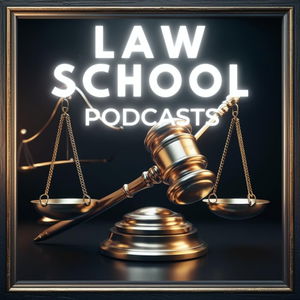I. Discovery: The Cornerstone of Fact-Finding
The lecture begins by establishing discovery as a critical, foundational stage in civil litigation, going beyond a mere preliminary step.
Key Ideas:
Fact-Finding and Transparency: Discovery is the "fact‐finding stage where both parties exchange information to ensure that each side has access to the facts necessary for a fair trial." It aims to replace "trial by ambush" with a system emphasizing "transparency and fairness."
Strategic Importance: The lecture emphasizes that "discovery is where cases are frequently won or lost, sometimes even before a judge or jury hears any argument," highlighting its strategic value.
A. Mandatory Initial Disclosures (Rule 26(a))
Parties are required to proactively provide essential information without a formal request.
Key Ideas:
Scope of Disclosure: This includes "the identities of individuals likely to possess relevant information, key documents that support claims or defenses, the basis for any computed damages, and information about any insurance agreements that might affect potential recovery."
Importance of Accuracy and Completeness: Accuracy in these disclosures is "paramount" to "prevent surprises later on and ensure that both sides are working with as full a picture as possible."
B. Discovery Tools
The lecture details various tools available to parties during discovery.
Key Ideas:
Depositions: Formal, in-person question-and-answer sessions under oath, useful for "peel[ing] back layers of testimony" and potentially revealing critical information. The lecturer notes that "a well-conducted deposition can often break a case wide open."
Interrogatories: Written questions answered under oath, valuable for establishing "the basics—identifying key individuals, understanding the timeline of events, and clarifying the positions of the parties involved." There is generally a "cap on the number of interrogatories" to encourage focused questioning.
Requests for Production: Compel the production of documents, emails, and other pertinent evidence, including electronic data, leading to the realm of "e-discovery."
Requests for Admission: Ask the opposing party to confirm or deny specific facts. Failure to respond within the timeframe results in the facts being "deemed admitted," which can "dramatically narrow the issues in dispute."
Physical and Mental Examinations: Obtainable in cases where a party's condition is at issue, usually court-ordered to provide an "objective assessment."
C. Limits and Protections in Discovery
Discovery is not unlimited and is subject to certain protections.
Key Ideas:
Privileges: The "attorney-client privilege protects communications between a lawyer and their client," and the "work product doctrine safeguards materials prepared in anticipation of litigation." However, these are not absolute and can be overcome if a "substantial need" and lack of alternative means of obtaining the information are demonstrated.
Handling Discovery Disputes (Rule 37): Courts can impose sanctions for failure to comply with discovery, ranging from "monetary penalties to evidentiary preclusions," underscoring the importance of adhering to "discovery protocols."
II. Summary Judgment: Resolving Cases Without Trial
Summary judgment is a procedural mechanism to resolve claims when there is no genuine dispute over material facts.
Key Ideas:
Standard for Summary Judgment (Rule 56): The moving party must demonstrate "that there is no genuine dispute regarding any material fact," meaning "the evidence must be so unequivocal that no reasonable jury could find in favor of the opposing party." The burden then shifts to the non-moving party to show specific facts creating a genuine dispute.
Relationship with Discovery: "The evidentiary record that supports or opposes summary judgment is largely built during the discovery phase." A "well-planned discovery strategy can significantly bolster your position on summary judgment."
Partial Summary Judgment: The rule
